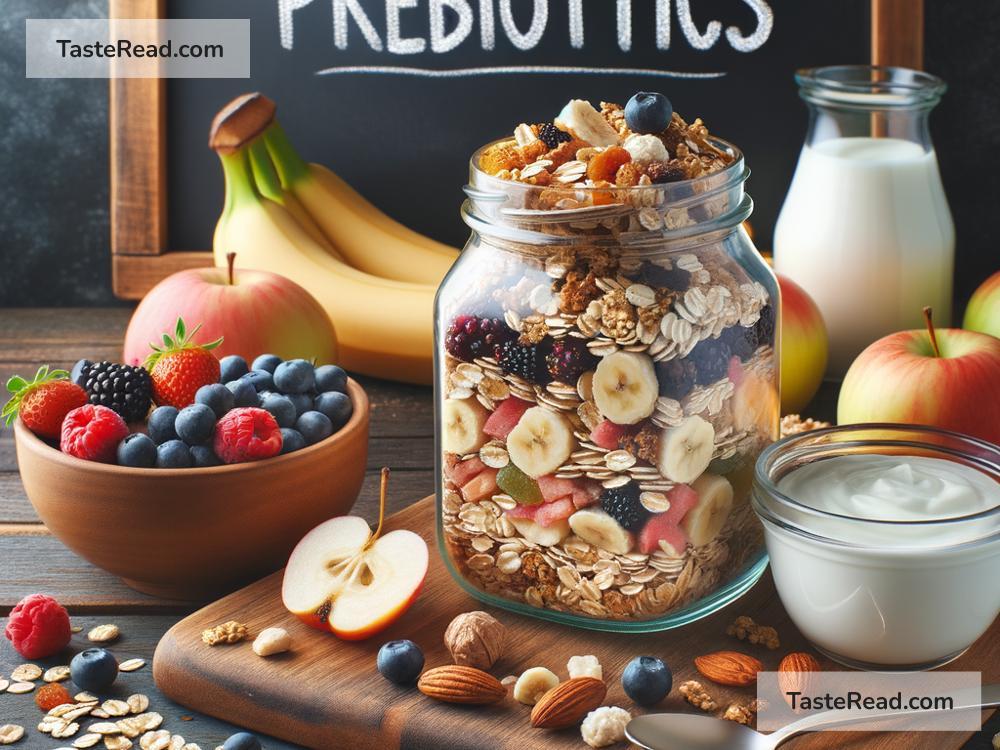Understanding the Role of Prebiotics in Health
When it comes to staying healthy, most people are familiar with probiotics—those “good bacteria” found in foods like yogurt or supplements that keep your gut in balance. But have you ever heard about prebiotics? Prebiotics are just as important as probiotics, and they play a vital role in supporting your overall health. In this article, we’ll explore what prebiotics are, why they matter, and how you can incorporate them into your diet.
What Are Prebiotics?
Prebiotics are a type of fiber that feeds the probiotics in your gut. You can think of prebiotics as food for the good bacteria in your intestines. While probiotics are live microorganisms that help maintain a healthy gut, prebiotics are the nutrients that keep those microorganisms strong and active.
Prebiotics are naturally found in certain foods, especially fruits, vegetables, and whole grains. They resist digestion in your stomach and small intestine, making their way down to your large intestine intact. There, they act as a fertilizer for the beneficial bacteria in your gut, helping them grow and thrive.
Why Are Prebiotics Important for Health?
The relationship between prebiotics and probiotics can be compared to tending a garden. Probiotics are like the plants in this garden, while prebiotics are the water, sunlight, and soil nutrients that help those plants grow. Without prebiotics, probiotics wouldn’t be able to thrive and perform their job in your gut.
Here are some specific ways prebiotics contribute to your health:
-
Improved Digestion:
Prebiotics help your gut bacteria break down food effectively, preventing common digestive problems like bloating, constipation, and indigestion. They ensure your digestive system runs smoothly. -
Better Gut Health:
A healthy gut is the key to overall well-being. Prebiotics promote the growth of good bacteria, which helps defend against harmful bacteria and viruses. This balance reduces inflammation and improves immunity. -
Enhanced Nutrient Absorption:
Prebiotics help your body absorb key nutrients, like calcium and magnesium, from food. This can strengthen your bones and help your cells function better. -
Mental Well-being:
Have you heard of the “gut-brain connection”? Your gut and brain are linked, and the bacteria in your gut play a key role in your mental health. Prebiotics can indirectly support mood, memory, and focus by helping good bacteria flourish. -
Reduced Risk of Disease:
Prebiotics can improve metabolic health by promoting healthy blood sugar levels and lowering bad cholesterol. They may also reduce your risk of chronic illnesses, like heart disease and diabetes.
Where Can You Find Prebiotics?
The good news is that prebiotics are found in many foods you eat every day. You don’t necessarily need supplements to get enough prebiotics. Here’s a list of foods that contain prebiotic fiber:
-
Vegetables:
Onions, garlic, leeks, asparagus, and artichokes are all rich in prebiotics. These foods contain a type of fiber called inulin, which is excellent for feeding gut bacteria. -
Fruits:
Bananas, apples, berries, and citrus fruits are great sources of prebiotics. They also offer other health benefits, like vitamins and antioxidants. -
Whole Grains:
Whole grains, such as oats, barley, and rye, are packed with prebiotic fiber. They can help support digestion and keep you feeling full for longer. -
Legumes:
Foods like lentils, chickpeas, and beans are high in prebiotics, providing fuel for your gut to stay healthy. -
Nuts and Seeds:
Almonds, flaxseeds, and chia seeds are easy snacks that come with a dose of prebiotics.
If you want to support your gut health, make sure to include these foods in your meals regularly. Everyone’s gut microbiome is unique, so experiment with different prebiotic-rich foods to see what works best for you.
How Much Prebiotic Fiber Do You Need?
Experts recommend consuming roughly 25–38 grams of fiber each day, though this number can vary depending on your age, gender, and activity level. Most of this fiber should come from foods with prebiotics. However, it’s important to gradually increase your fiber intake if you’re not used to eating a lot of it. Jumping straight into a high-fiber diet can lead to stomach discomfort, like bloating or gas.
Also, drinking plenty of water is essential as fiber works best when paired with adequate hydration.
Pair Prebiotics with Probiotics
Prebiotics and probiotics work hand-in-hand for your gut health, so it’s a good idea to eat foods that contain both. For example, pairing banana slices (prebiotic) with yogurt (probiotic) is a delicious way to help your digestive system flourish. Other combinations include oatmeal with kefir or stir-fried asparagus with kimchi.
If you’re considering taking prebiotic or probiotic supplements, consult your doctor or dietitian first. Supplements aren’t one-size-fits-all, and getting these nutrients through food is often the safest option.
In Conclusion
Prebiotics are the unsung heroes of gut health. They support the probiotics in your intestines, offering benefits like improved digestion, a stronger immune system, and even better mental health. By eating a diet rich in prebiotic foods, you’re giving your body the tools it needs to operate at its best.
So, the next time you think about taking care of your gut, don’t just focus on probiotics. Remember the role of prebiotics—because even the healthiest garden needs good fertilizer!


